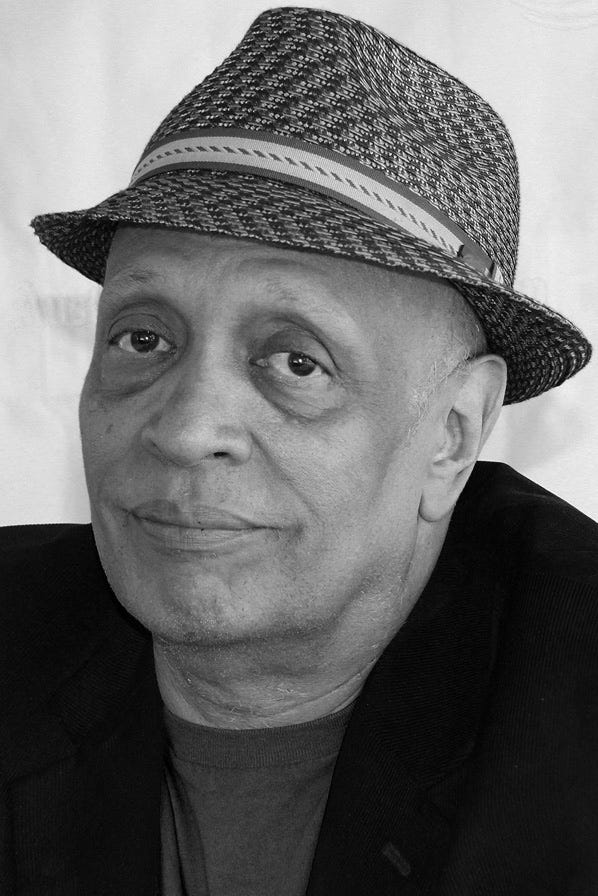Every art form, every means of creative expression, seems to be surrounded by a plethora of experts- critics, curators, academics, historians, etc. Sometimes it feels like they outnumber the working artists of the world. On the good side of things, they help educate people about the nuances of current and past creative work. They can describe and define movements in art, and provide guidance to help people understand how artists work and how that work reinforces, contrasts, or is influenced by that of other artists working at the same time, or in the distant past. On the negative side, these same experts can use their often outsized influence to feed their egos and exercise control over whatever creative world they “support”, often at the expense of very deserving people who are desperately trying to get notice and recognition for their work. Most artists by nature are not very good at self-promotion, marketing and other business practices. Really fine work involves taking risks and breaking new ground, and that can breed a lot of insecurity, putting artists at the mercy of the pundits who should be helping to promote them. Many creative people become frustrated and jaded by the walls that they run up against, but this might stem from being too naive to begin with. The famous line from the movie “Field of Dreams” is “build it and they will come”. That works in the fantasy world of that particular story line, but if you choose to use it as your mantra, you’re probably looking at a world of pain.
How does one go about becoming a critic? I’ll admit that I have no idea. I guess you get a master’s degree in art criticism/history while developing writing skills, and then find some venue to express yourself. Objective criticism can be a good thing, guiding people to new artists who are doing exemplary work, or away from an established artist's work if it seems mediocre or “mailed-in”. Subjective criticism? Pretty arrogant. Stanley Crouch was, among other things, a jazz critic. Along with Wynton Marsalis, he was one of the main “expert” commentators and advisors for Ken Burns “Jazz” documentary. An avowed jazz purist, he hated the Avant Garde and Fusion movements, and wrote scathingly of Miles Davis’ groundbreaking album “Bitches Brew”, calling him a sell-out. Good criticism? I think personal ax grinding would be a better description. A good critic should be able to recognize the value of something, and its place in that art form’s continuum, even if it’s not to his taste. Just my opinion. When ego rules, sometimes judgment fails. I think it’s humorous when a famous movie critic writes a bad review of, say, the latest Marvel superhero movie. I don’t really watch these movies because I don’t like endless loud action and gunplay with lightweight plotting, but that’s exactly what people who do like them want, and they probably aren’t scouring the critical reviews before they go. That doesn’t downplay how much power critics can wield for better or worse. In the lyrics in the middle of the Sting song “Saint Augustine in Hell”, he writes “Hell is full of high court jesters, failed saints. We’ve got Cardinals, Archbishops, barristers, Certified accountants, music critics, they’re all here.” Even if you’ve sold over 50 million records, criticism can still sting. It also means that you shouldn’t become a critic if you don’t like people hating you.
I read the NY Times a lot, and in recent years there has been a slightly disturbing trend where their art critics write pieces about artists who are being “discovered” very late in life, often in their mid 80’s. They are most likely to be women or people of color, and the articles almost always coincide with their first major retrospective or one person show. It’s usually apparent that the critics know of the subject's work, which begs the question, “Where were you when this person was doing the same good work earlier in their lives?” Sadly, it’s fairly common for the follow up article a year or two later to be an obituary.
Calls for entry. Poetry Competitions. Open auditions. Blind submissions. These are some of the many ways that artists try to get their work in front of an audience. To be judged objectively by your peers? Maybe, not necessarily. Take, as an example, an open call for work for an upcoming photography show, possibly with a specific theme. More likely than not, the jurist(s) will be from academia. Most creative arts teachers are also working artists, which makes sense because it’s very hard to make a living solely as an artist. It’s also a relatively small world where many teachers, (and other people from within the same circle, like curators), know one another. And it’s common for galleries and other institutions to tap into their pool of colleagues to jury their shows. Do you think that these judges always objectively ignore the fact that some of the submissions are from friends and peers and judge the work solely based on merit? I don’t really think so. It’s not human nature. Their personal work can also be an indicator of what direction they will take when choosing the pieces that will make up the final exhibition. This isn’t meant to be a criticism of that approach, but rather a hint that you need to do some research on the jurist before deciding if or what to submit. I think you still need to submit work that is meaningful to you rather than purposely trying to cater to the jurist’s taste; that will probably lead to disappointment. The point is, it’s never as simple as “build it and they will come”.
The author Walter Mosley talks about dealing with the publishing industry in a Times interview with David Marchese- “Here’s the thing: When I first got published, there weren't a lot of black people being published. The amount of work you had to do to be out there in the world was amazing. That’s no longer true. But publishing remained incredibly white. Because it's been so white, and because it’s the kind of business where you hire your friends, you also hire people who tell stories that you’re interested in. It’s not like, “I don’t want to hire that Black person”. It’s more like, “I don’t know what he’s talking about, and he’s not my friend”. When you look at what’s available in fiction writing alone, it runs the gamut from works of genius to utter crap. It’s kind of scary to think of how much good work we may not ever be able to see.
It’s probably best to learn to embrace the inevitable rejection notices if you’re entering competitions, which usually say something along the lines of “Both the volume and quality of the work was incredible, unfortunately, yours was not selected”. One widely used platform simply lists each of your submissions and marks them as “not invited”, (or “invited”), like it’s a grade school party that you’ve been waiting for an invitation to, and you open it to find out that you’re not invited!




